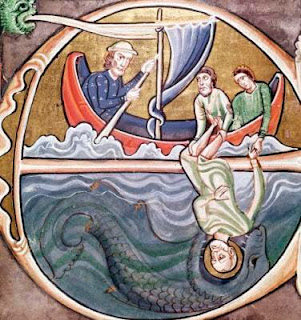Daily Devo w/ Pastor Eric October 29, 2021
Chosen to See, Hear, and Understand
Matthew 13:10-17, NRSV - Then the disciples came
and asked him, “Why do you speak to them in parables?” He answered, “To you it has been given to know
the secrets of the kingdom of heaven, but to them it has not been given. For to those who have, more will be given, and
they will have an abundance; but from those who have nothing, even what they
have will be taken away. The reason I
speak to them in parables is that ‘seeing they do not perceive, and hearing
they do not listen, nor do they understand.’ With them indeed is fulfilled the prophecy of
Isaiah that says:
‘You will indeed listen, but never understand,
and you will
indeed look, but never perceive.
For this people’s heart has grown dull,
and their ears
are hard of hearing,
and they
have shut their eyes;
so that
they might not look with their eyes,
and listen with
their ears,
and understand with their heart and turn—
and I would
heal them.’
But blessed are your eyes, for they see, and your ears,
for they hear. Truly I tell you, many
prophets and righteous people longed to see what you see, but did not see it,
and to hear what you hear, but did not hear it.
You
might have noticed that we skipped some verses yesterday as we covered the
parable of the Sower and it’s interpretation by Jesus. In between the parable and the interpretation,
we have the above verses – a quick exchange between Jesus and his disciples
about why He uses parables. Jesus’s
explanation creates some tension for many because He seems to suggest that some
are chosen to understand the “secrets of the kingdom,” and some are not. I wish I could come up with rationale to
explain that that is not what Jesus means to suggest, but I cannot. Some ARE chosen to understand the kingdom and
some are not. Jesus says this is not new
and quotes the prophet Isaiah who said the same thing. But it does beg the question, “why?”
Jesus doesn’t
address the “why” question in this exchange here, but Eugene Peterson, in his
The Message translation, suggests that it is a question of readiness:
“[Jesus] replied, “You’ve been
given insight into God’s kingdom. You know how it works. Not everybody has this
gift, this insight; it hasn’t been given to them. Whenever someone has a ready
heart for this, the insights and understandings flow freely. But if there is no
readiness, any trace of receptivity soon disappears. That’s why I tell stories:
to create readiness, to nudge the people toward a welcome awakening. In their
present state they can stare till doomsday and not see it, listen till they’re
blue in the face and not get it. (vs. 11-13)
There is truth to this.
If you aren’t ready to hear something, you will not hear it. Furthermore, a good story can actually facilitate
readiness to hear a hard truth even when you were not ready to hear it. Many a preacher, including yours truly, know the
power of a good story and use stories for that reason. We chase this practice back to Jesus’s use of
parables.
However,
the “power of stories” is NOT Jesus’s point here, lest we get distracted. Listen again to final statement on the
matter; “blessed are your eyes, for they see, and your ears, for they hear.”
He reminds the disciples that they are blessed because they have been given to
understand the mysteries of the kingdom.
This understanding is not something they can be puffed up about; it is a
gift. Any revelation of the mysteries of
God is given because the person has been chosen to receive it. It was true in Isaiah’s day, Jesus’s day, and
now. To the extent you perceive God’s
wonders, you do so because you have been granted access that you could never
attain by your own merits, insight, or wisdom.
If you know God, you know God because God wants you to know God. Don’t ever be tempted to think otherwise.
Question: Have you
ever gotten “puffed up” about the fact that you seem to understand the things
of God while others do not?
Prayer: Gracious God,
thank you for any understanding of your Truth I have. Purge me of any notion that have such wisdom because
my merits. Keep my heart humble that I
may be gracious servant to you and others. Amen.
Prayer Focus: Pray
for church leaders by name today
Song: Chosen – Sidewalk
Prophets












